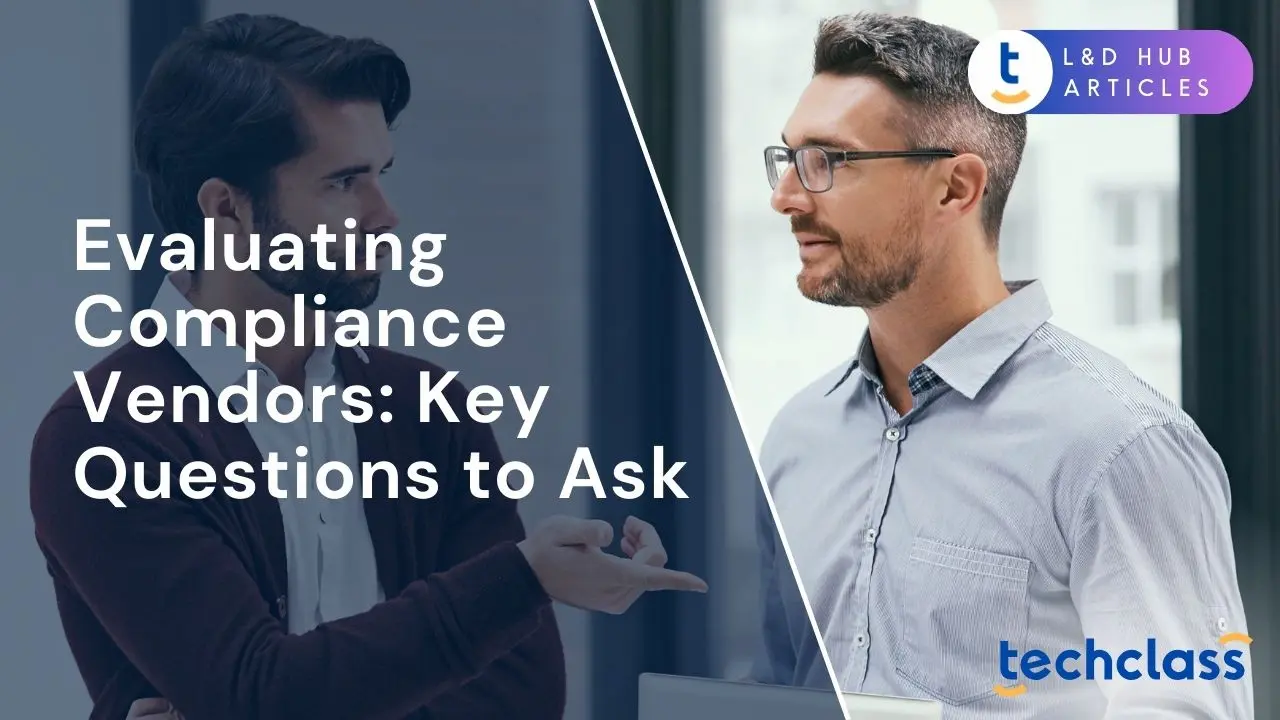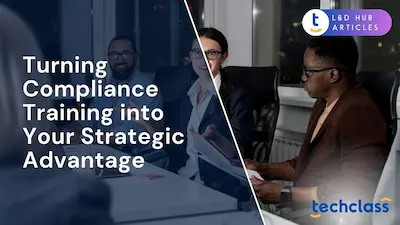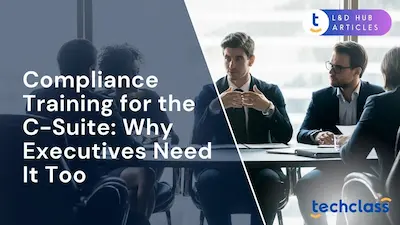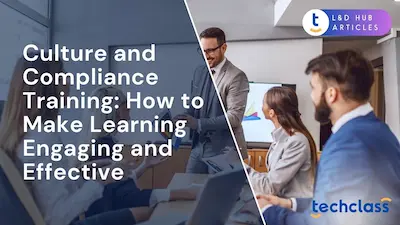
“If you think compliance is expensive, try non-compliance,” as former U.S. Deputy Attorney General Paul McNulty famously noted. Businesses today face a maze of regulations, from data protection laws to labor standards, and the cost of getting it wrong is steep. A recent study found the average cost of non-compliance to be $14.82 million, which is 2.71 times higher than the cost of remaining compliant. To manage these compliance burdens, many organizations turn to specialized compliance vendors for help. In fact, 38% of compliance functions reported outsourcing some or all compliance activities in 2023, up from 30% the year before. However, selecting the wrong vendor can backfire, leading to hidden costs, reputational damage, and inefficiencies as your business grows. How can HR professionals, business owners, and enterprise leaders ensure they choose the right compliance partner? It starts with asking the key questions that reveal a vendor’s capabilities, reliability, and fit for your organization’s needs.
Before diving into questions for vendors, it’s critical to clarify your own compliance requirements. Consider the regulations your company must follow (e.g. employment laws, data privacy like GDPR, industry-specific rules) and the specific functions you need help with, whether it’s policy management, employee training, audit preparation, or all of the above. With your needs defined, you can evaluate potential vendors using a checklist of essential criteria. Below, we outline those criteria in the form of key questions to ask when evaluating compliance vendors, applicable across industries and organizational sizes.
Every successful vendor evaluation begins with a clear understanding of what you need. Before grilling vendors on their offerings, take stock of your internal and external compliance obligations. Regular Compliance Training helps teams stay informed about these broadest obligations and strengthens their ability to assess whether potential vendors can meet regulatory requirements. Identify the key areas where you require support, for example, monitoring legal changes in HR regulations, conducting compliance audits, managing safety training, or maintaining data protection standards. Also consider the scope (local vs. international compliance) and volume (number of employees or records, number of jurisdictions) that a vendor would need to handle. By mapping out your compliance program’s requirements, you can target vendors equipped to meet them. This proactive step will inform the questions you emphasize and help you rule out vendors who cannot cover critical bases. In short, know your needs before evaluating solutions, it will save time and ensure a better vendor match.
Key question: Does the vendor have the necessary expertise, qualifications, and accreditation for our compliance requirements? A compliance vendor must demonstrate deep expertise in the specific laws, regulations, and standards relevant to your business, with a team that includes certified professionals or advisors in the appropriate domains—such as GDPR specialists or certified data protection officers for data privacy, labor law or workplace safety experts for HR compliance, and ISO 27001 auditors or CISSP-certified staff for information security. Certain compliance tasks legally require accredited professionals: ISO certifications can only be issued by bodies recognized under ISO/IEC 17021, SOC 2 reports must be issued by licensed Certified Public Accountants or authorized firms, and FedRAMP authorizations require assessments by Third-Party Assessment Organizations accredited by FedRAMP. Software tools or internal consultants cannot issue official certifications independently. Engaging a vendor without these credentials may result in needing a second firm to perform the actual audit or certification, adding time, cost, and potential compliance risk.
In addition to qualifications, assess the vendor’s regulatory knowledge base. Do they stay up-to-date on legal changes in your industry? You might ask, “How do you keep current with evolving regulations that affect us?” A strong vendor should be able to cite recent regulatory updates and explain how they adjust their services accordingly. Ultimately, you want a partner whose expertise will keep you compliant and who won’t hit a wall when specialized knowledge or authority is required.
Key question: Can this vendor address our needs today and adapt to future compliance demands? Compliance is not a static target, as your company grows or enters new markets, your compliance obligations will likely expand. The ideal vendor offers a suite of services broad enough to cover multiple facets of compliance. For example, a vendor might provide an online platform for policy management now, but can they also assist with audit preparation, employee training, or additional regulatory frameworks later on? It pays to select a vendor “with your future in mind”. If you start with a narrow-scope vendor and then outgrow them, switching providers midstream can be inefficient and costly. Companies that have had to change vendors for new compliance needs often end up repeating onboarding tasks, duplicating data transfers, and going through new learning curves, all of which waste time and resources.
During evaluation, ask vendors about the full range of compliance areas they cover. For instance: “Beyond the basic service, what other compliance domains or certifications can you support if our needs evolve?” Also inquire if they have partnerships or modules to extend functionality. Some vendors bundle multiple capabilities (e.g. a training module, a legal update feed, and an audit management tool) which can streamline your program. Be wary of vendors who have a very narrow focus unless you’re certain your needs won’t broaden. In contrast, a vendor with comprehensive offerings and the ability to scale with your business can become a long-term partner, saving you the disruption of switching down the line.
Key question: How will the vendor protect our sensitive data and ensure privacy compliance? When you entrust a vendor with employee information, financial records, or other sensitive data, you need ironclad assurances of security. Any weakness in the vendor’s security measures can directly become your problem, if a breach occurs through the vendor, your organization still faces the fallout. Unfortunately, third-party data breaches are common: one analysis found that 98% of firms had at least one vendor that suffered a breach in the past two years. Therefore, you must scrutinize a vendor’s security posture as closely as your own.
Some questions to ask: Who in the vendor’s organization will have access to our data, and how is that access controlled? A good vendor should enforce the principle of least privilege, meaning only authorized personnel can access your information, and they should ideally conduct background checks on those employees handling sensitive data. Also ask about data encryption and storage: Do they encrypt data at rest and in transit? How and where are backups stored? You want to hear that they have robust encryption protocols and redundant, secure backups to prevent data loss.
It’s wise to inquire about the vendor’s own security certifications and compliance. Reputable vendors often maintain certifications like ISO 27001 (information security) or SOC 2 to demonstrate their commitment to security best practices. Ask if the vendor is certified or audited against well-known standards; if they are managing your compliance, they should also practice what they preach when it comes to data protection. Additionally, ensure the vendor’s platform or process complies with any privacy laws relevant to you (for example, GDPR in the EU or HIPAA in healthcare). In summary, verify that the vendor has layered security controls, clear data governance policies, and a track record free of major security incidents. Your data, and by extension your reputation, must be safe in their hands.
Key question: What measures does the vendor have in place to ensure reliability and manage risks (disasters, downtime, errors)? Even a highly competent compliance vendor can become a liability if they cannot operate reliably or recover quickly from disruptions. Imagine your vendor’s system goes down right when an important compliance deadline hits, you need confidence that they have contingency plans. During evaluation, probe the vendor’s business continuity and disaster recovery plans. Do they have redundant systems and data backups so that service can continue during an outage? Ask, for example: “How frequently do you back up data, and how quickly could you restore operations in the event of a major system failure?” Top-tier vendors will have solid answers, like maintaining multiple backup copies in geographically separated data centers. They should also have a documented Business Continuity Plan (BCP) that staff are trained on, detailing how they will keep services running through events like natural disasters or cyberattacks. Don’t hesitate to ask vendors for a high-level overview of their BCP, if they can’t convey a clear strategy, that’s a red flag.
Another aspect of risk management is whether the vendor carries appropriate insurance. While it’s a scenario no one wants, consider what happens if the vendor makes a mistake that costs your company money (e.g. a compliance error leading to a fine, or a data leak causing damages). A responsible vendor should have insurance such as Errors & Omissions (E&O) or cyber liability coverage to financially backstop their services. You can directly ask: “Do you carry insurance that would cover client losses resulting from your failure to perform or a security breach?” A vendor with substantial coverage shows they acknowledge the high stakes and are prepared to stand behind their work.
In summary, evaluate vendors not just on what they do but how resiliently they do it. Look for evidence of strong operational controls, regular risk assessments, and an organizational culture that prioritizes compliance and uptime just as much as you do. A vendor that plans for the worst (and tests those plans) will be a safer bet to support your mission-critical compliance needs without interruption.
Key question: Can the vendor’s solution be tailored to our industry and specific requirements? Compliance practices can vary greatly between industries, what works for a financial institution might not work for a healthcare provider or a manufacturing firm. It’s important that a compliance vendor either specializes in your industry or has the flexibility to adapt to it. During your evaluation, ask vendors about any industry-specific offerings or expertise. For example, do they have modules or content designed for healthcare compliance versus retail, or multilingual support for global operations? Many vendors highlight their specialty areas, such as coverage of certain geographies or regulatory niches. If your company operates internationally or in a highly specialized sector, prioritize vendors who have proven experience in that context.
Additionally, consider how well the vendor’s product or service will integrate with your existing processes. If it’s a software solution, does it support integration with your current systems (HRIS, ERP, document management, etc.)? A common question is: “Does your system integrate with our existing tools, and do you offer APIs or pre-built connectors?” A vendor that easily plugs into your workflow will save time and reduce errors, whereas one that operates in a silo may create duplicate work. Also inquire about the flexibility of configuration. Can the solution be configured to match your organizational structure, approval flows, and terminology? You shouldn’t need a vendor’s permission to make basic tweaks, the more you can customize the platform (within the bounds of security), the better it will fit your needs.
Don’t forget to ask about format and delivery options. Depending on your needs, you might require the solution in different formats, for instance, a mix of software and physical services, cloud-based access vs. on-premise, etc. A vendor should clarify whether their solution is cloud-only, on-site, or hybrid, and which format aligns with your IT policies. Ultimately, the goal is to ensure the vendor’s offering doesn’t force you into a one-size-fits-all box. The best compliance vendors will act more like partners, working to understand your unique challenges and tailoring their approach accordingly.
Key question: How will the vendor communicate with us and support our team on an ongoing basis? A compliance vendor isn’t just a one-off provider; it’s more often an ongoing relationship. How they engage with you, especially when laws change or issues arise, is critical. First, evaluate their communication channels and frequency. Ask vendors: “How do you keep clients informed of regulatory updates or changes in compliance requirements?” For example, if a new labor law or data regulation is passed, a good vendor should proactively notify you and even guide you on necessary actions. Regular newsletters, update alerts, or webinars are signs of a vendor that actively partners with clients on staying up-to-date. Also inquire how they handle day-to-day communications: Do you get a dedicated account manager or point of contact? What is their response time for questions or technical support? Knowing whom to call for help and getting timely responses can make a huge difference in your compliance program’s smooth operation.
Support and training offerings are another major component. Especially during onboarding a new compliance system, your staff may need training sessions or documentation to learn the ropes. Ask if the vendor provides initial training for your administrators and end-users, and whether ongoing training resources or refresher courses are available. Some vendors have online knowledge bases, user communities, or even certification programs for client personnel, all of which can enhance your team’s competence in using the solution. Additionally, clarify the support model: Is support available 24/7 (especially important if you have global operations or critical compliance activities after hours)? Do they guarantee certain service levels (SLAs) for support requests? Vendors that offer multiple support tiers (e.g. standard vs. premium support) should explain what each includes.
Finally, consider communication style and transparency. Compliance can be complicated, so you want a vendor who communicates clearly without excessive jargon, and who is honest about issues. During your interactions, note whether they freely discuss challenges and how they’ve resolved past client problems, this candor is a good sign. In essence, treat your early conversations as a preview of the partnership. Strong communication and support distinguish a vendor who will be there for you in the long haul versus one who might leave you in the dark.
Key question: What is the vendor’s reputation, and can they demonstrate a strong track record with clients like us? In the compliance arena, trust is paramount. You’ll want to vet each prospective vendor’s history to ensure they are as reliable as they claim. Start by looking for credentials and endorsements: Have they been recognized or certified by reputable authorities? For example, a vendor providing compliance audits should have a history of working with official certification bodies (ISO, regulatory agencies, professional institutes) and maintaining good standing with them. If an auditor or compliance firm has longstanding relationships with oversight organizations, it suggests competence and credibility. Conversely, be cautious if you discover any indications that a vendor lost a certification or was sanctioned, that could “trickle down” reputational damage to your company if you’re associated with them.
Next, ask for client references and case studies. A confident vendor will readily connect you with other clients (ideally in similar industries or use cases) who can speak to their performance. When talking to references, ask about the vendor’s reliability, the effectiveness of their solution, and how issues were handled. You can also request case studies or testimonials that highlight measurable outcomes, such as reduced compliance incidents or time saved on audits. Additionally, research the vendor’s presence in the market: How long have they been in business and serving compliance needs? Do they have well-known companies as clients? A broader client base can indicate stability. Public reviews or analyst reports (when available) might also provide insight, though in the B2B compliance niche these can be limited.
Finally, consider any ethical or legal red flags. Since a compliance vendor will be deeply involved in ethical and legal adherence for your company, it’s only fair to ensure they uphold high standards themselves. Check news sources for any past data breaches involving the vendor, lawsuits, or regulatory penalties. You want a partner whose house is in order, one that exemplifies the compliance culture you aspire to. In summary, do your due diligence: a vendor’s past performance and reputation among clients is one of the best predictors of the experience you’ll have. If anything feels off during the vetting process, trust that instinct and dig deeper or move on to another candidate.
Key question: What will this vendor truly cost, and what value do we gain in return? Budget considerations are always a factor, but with compliance, the cheapest option is not necessarily the wisest. Instead of focusing solely on price, evaluate value for money, weigh the vendor’s cost against the potential savings and risk reduction they provide. Start by getting a transparent breakdown of the vendor’s pricing structure. Does the vendor charge a flat subscription fee, per-user licensing, or fees per service/project? Make sure to surface any hidden costs that might not be obvious upfront. For example, ask about implementation or setup fees, costs for additional modules or features, training fees, support upgrades, or charges for future updates and customizations. It’s better to know all possible expenses now rather than be surprised later. As one guide notes, understanding total cost of ownership helps avoid unwelcome surprises and makes it easier to evaluate ROI.
Next, consider the potential cost of not using a good compliance vendor. This is where you recall the earlier point: non-compliance can cost far more than compliance. If a vendor’s solution helps you prevent a major fine or streamline labor-intensive processes, that value should be factored in. Some vendors may offer estimates of time saved or risk mitigated, for instance, if their software automates reporting, how many hours of employee labor does that save per month? While such estimates are often marketing figures, they can guide your own internal calculations. It’s also useful to compare the costs of different vendors in light of their capabilities. One might have a higher fee but include more services or stronger support, which could be worth the premium.
When discussing cost, ask about any guarantees or warranties. Does the vendor guarantee compliance in certain areas (some labor law poster services, for example, will pay your fine if their information was out of date)? Guarantees can be a sign of confidence in their product. Also clarify the terms: contract length, termination clauses, and what happens if you’re not satisfied. Flexibility can be valuable, a vendor that offers a pilot period or short initial contract might give you peace of mind to test their value. In essence, approach the cost conversation holistically. Your goal is to invest in a compliance partner that delivers measurable protection and efficiency gains for your organization. Saving a few dollars upfront pales in comparison to avoiding a multi-million dollar penalty or a costly operational disruption down the road.
Choosing a compliance vendor is more than a transactional purchase, it’s the beginning of a partnership that safeguards your business’s integrity and continuity. By asking the right questions and thoroughly vetting each contender, you set the stage for a successful alliance. Remember that a great compliance vendor should not only check the boxes on paper but also align with your organization’s culture of compliance. They should educate and empower your team, adapt as your needs evolve, and stand with you in the face of regulatory challenges. In today’s complex landscape, no enterprise can afford to take compliance lightly. The vendor you select will play a pivotal role in protecting your workforce, your data, and your reputation. Treat the evaluation process as a strategic investment of time. The reward is confidence that when new laws emerge or audits loom, you have a trusted partner ready to guide you through, keeping your organization on the right side of regulations and free to focus on its core mission. With due diligence and the key questions outlined above, HR and business leaders can approach compliance vendor selection with clarity and purpose, ultimately building a strong partnership that turns compliance from a headache into a well-managed business asset.
While asking the right questions is essential for selecting a partner, the ultimate goal is to move from evaluation to execution without increasing your administrative load. Managing diverse regulatory requirements across a growing workforce often requires a balance between specialized expertise and the right technological infrastructure.
TechClass serves as this foundational layer by offering an automated LMS that integrates directly with a premium Training Library. By centralizing your compliance training, you can automate certification tracking and generate real-time reports for auditors. This approach eliminates the need for manual follow-ups and ensures that your training materials stay current with evolving laws. By choosing a comprehensive platform, you can secure your organization's reputation while providing a modern, engaging experience for every employee.
Before contacting vendors, identify your compliance requirements, including relevant regulations, scope, and volume of work. This ensures you target vendors equipped to meet your needs and avoid wasting time with unsuitable options.
Vendors must have certified experts or accredited professionals to handle specific compliance needs. Without proper credentials, they may not be able to provide official certifications or audit reports, leading to delays and extra costs.
Ask about data access controls, encryption, storage methods, backups, and compliance with standards like ISO 27001 or SOC 2. Ensuring robust data security protects your sensitive information and reduces breach risks.
Scalability ensures the vendor can support your current needs and adapt to future growth. A vendor with comprehensive services can help avoid costly disruptions from switching providers as your compliance demands evolve.
Reliable vendors have clear business continuity plans, robust disaster recovery processes, appropriate insurance, and a history of meeting service commitments. This minimizes downtime and operational risks.


